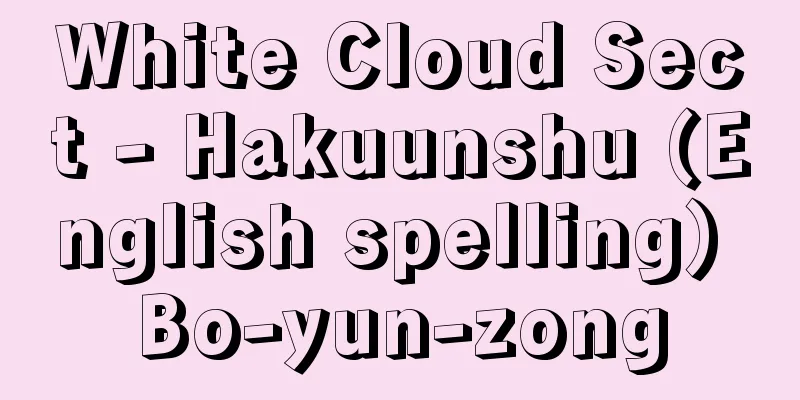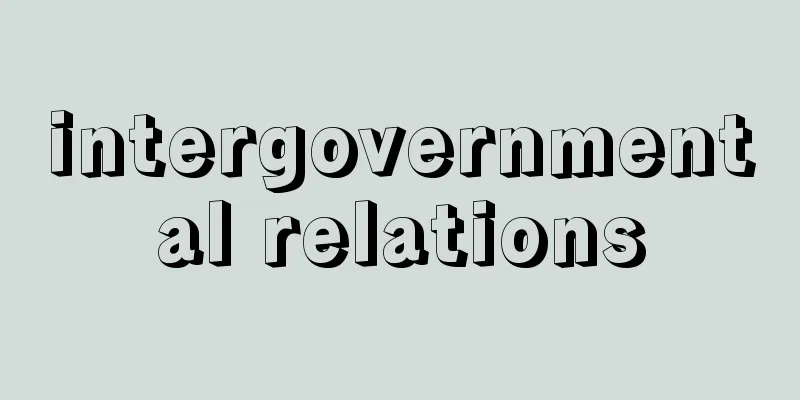Full-time union employee

|
A person who dedicates himself to labor union activities. There are two types: registered full-time employees, who are guaranteed their status as employees by the employer and dedicate themselves to union activities for a certain period of time, and non-registered full-time employees (dismissed full-time employees). Generally, this refers to the former. The registered full-time employee system is closely related to the organizational form unique to Japan, namely, enterprise unions, and was institutionalized as part of the guarantee of labor unions' right to organize and union activities. Although it has not been legalized, it is approved by employers based on labor agreements. The term of a registered full-time employee was initially left to the discretion of the union, and wages were paid by the employer. However, the revised Labor Union Law of 1949 (Law No. 174 of 1949) prohibited the paid registered full-time employee system, and since then, the union has been required to pay the wages of full-time employees, and it has become customary to treat them as on leave from the employer's perspective. In the case of public servants, registered full-time employees are subject to different restrictions than those in the private sector. In other words, due to the amendment of domestic laws following the ratification of ILO Convention No. 87 in 1968, full-time employees on the company's roster now require permission from the authorities. The period of full-time employment is set at five years, and while full-time employees are treated as being on leave, they are not included in the period of service that is the basis for calculating retirement allowances. [Kenji Yoshida] Source: Shogakukan Encyclopedia Nipponica About Encyclopedia Nipponica Information | Legend |
|
労働組合の活動に専念する者。使用者により従業員としての身分が保障されながら、一定期間組合活動に専念する在籍専従者と、それ以外の非在籍専従者(離職専従者)とに分けられる。一般には前者をさす。在籍専従制度は、企業別組合という日本特有の組織形態に密着し、労働組合の団結権・組合活動の保障の一環としてその制度化をみたものであり、法文化はされていないが、労働協約に基づき使用者が承認する形がとられている。在籍専従者の期限は、当初は組合の自主性にまかされ、賃金も使用者から支給されていた。しかし、1949年の改正労働組合法(昭和24年法律174号)では有給在籍専従制を禁じ、以来、専従者の給与は組合側が支払うことになり、使用者との関係でも休職扱いとするのが慣行となった。なお、公務員の場合、在籍専従者には民間とは違う制限が加えられている。すなわち、68年(昭和43)のILO第87号条約批准に伴う関係国内法の改正により、在籍専従者は当局の許可制となった。専従期間は5年とし、専従者を休職扱いとする一方、退職手当の算定の基礎となる勤務期間に算入しないことになっている。 [吉田健二] 出典 小学館 日本大百科全書(ニッポニカ)日本大百科全書(ニッポニカ)について 情報 | 凡例 |
<<: Union Alliance - Kumiai Doumei
>>: Union-managed health insurance - Kumiaikanshokenkouhoken
Recommend
Payment judgment - Verurteilungsurteil, Leistungsurteil
When a lawsuit for performance is filed, a judgmen...
Alpha starch - Alpha starch
…When rice is cooked, the starch becomes alpha st...
Opening - Kaigo
〘noun〙[一] Opening and closing. ① To open and join ...
Silkworm - Silkworm
The larvae of the silk moth. They belong to the or...
"Theory of Money and Credit"
…He studied economics at the University of Vienna...
Confession - Confession
In the Roman Catholic Church, believers confess th...
Imperfect fungi - fukanzenkinrui
Fungi imperfecti are a general term for fungi for...
Senba soup - Senbajiru
Also called "senba" or "senba-ni,&q...
Douglas fir
Also known as Douglas fir or Douglas fir. An everg...
saṃgīti (English spelling) samgiti
…From the Sanskrit saṃgīti, meaning “to recite.” ...
Gettysburg Address
A speech by President Lincoln delivered in Gettysb...
Kṛta (English spelling)
...That is, in one cycle from the great creation ...
Elasticity
It is a measure of how much an economic variable ...
Onigadake - Onigadake
(Echizen City, Fukui Prefecture) A tourist attract...
Jabalpur (English spelling)
A city in central Madhya Pradesh, central India. L...




![Toyokawa [city] - Toyokawa](/upload/images/67cc5bfa266e5.webp)




